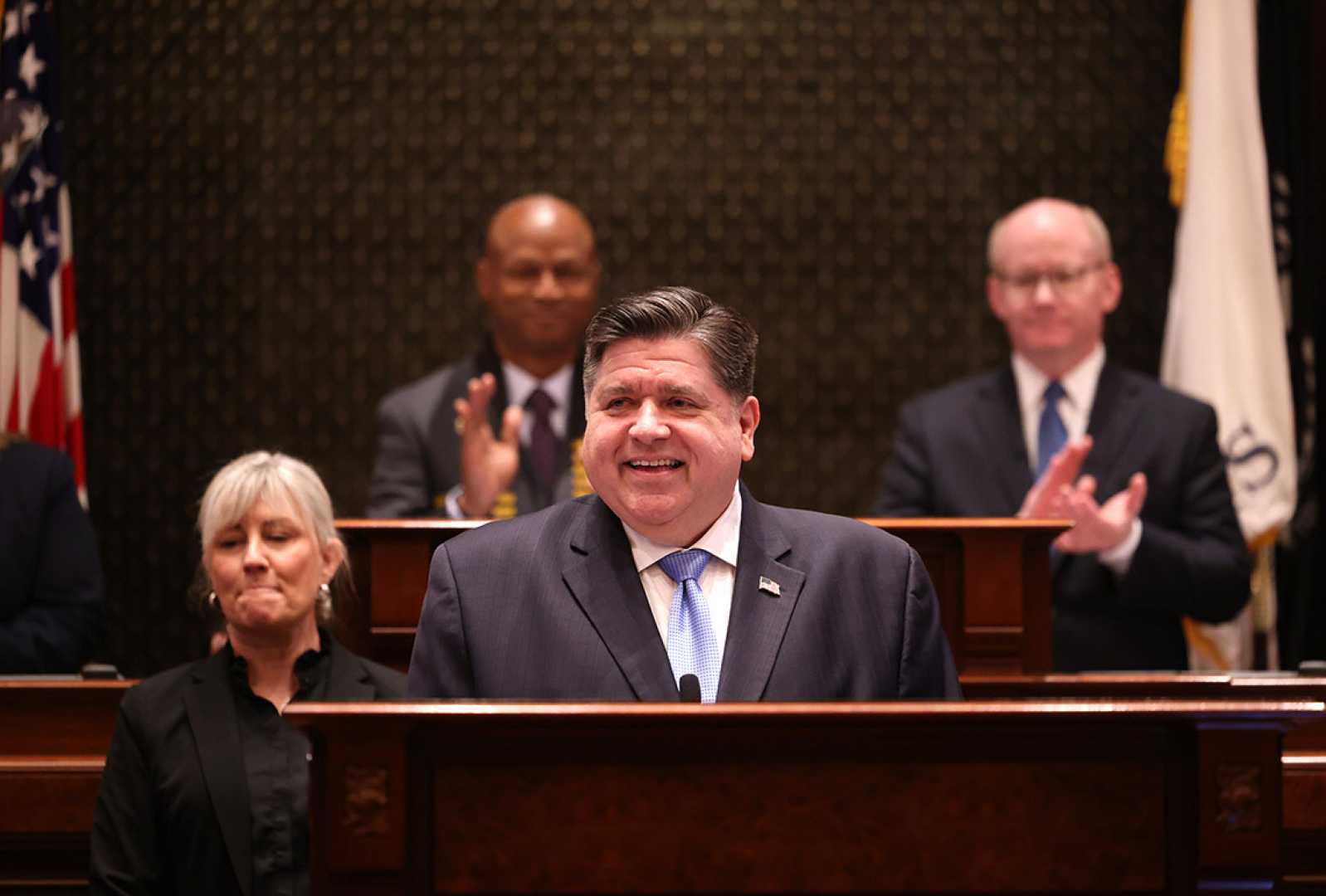Politics
Pritzker Critiques Trump in Budget Address, Sparks Controversy

SPRINGFIELD, Ill. — In a budget address on Wednesday, Illinois Governor JB Pritzker unveiled a $55.2 billion proposals while drawing contentious parallels between the actions of President Donald Trump and the rise of Nazism in 1930s Germany. Pritzker, known for his critique of Trump, delivered his address before the Illinois House chamber amid an atmosphere of political tension.
Pritzker’s spending plan includes mandated funding increases for education and pensions for the upcoming fiscal year starting July 1, while keeping spending flat in other areas. The governor’s address emphasized maintaining fiscal responsibility, as state revenues faced uncertainty due to proposed federal spending cuts and tariffs under the Trump administration.
Highlighting the importance of his proposals, Pritzker stated, “We’re preserving the progress we’ve made over the last six years, streamlining certain departments to do more with less, and delivering for our residents without raising their taxes.” The plan includes a $350 million increase in funding for K-12 education and aims to address pension requirements without increasing taxes.
A substantial part of Pritzker’s 35-minute address was dedicated to criticizing Trump’s policies, linking them to a concerning trajectory for America. “My oath is to the Constitution of our state and of our country. We don’t have kings in America — and I don’t intend to bend the knee to one,” Pritzker declared. He warned that if complacency persists, “all the atrocities of human history” could repeat themselves.
Following these statements, House GOP leader Tony McCombie condemned Pritzker’s remarks as “political rhetoric” intended to elevate his national profile, noting, “That was some speech. Certainly wasn’t what we anticipated.” Some Republicans walked out during Pritzker’s references to Nazism, suggesting discomfort with the comparisons.
Despite tensions with GOP members, Pritzker faces challenges within his party regarding budget allocation, especially concerning the elimination of a state-run health care initiative for noncitizens, a program that has drawn support from progressive lawmakers. This proposal could save approximately $330 million, but ignited criticism from Democrats like Sen. Karina Villa, who emphasized the importance of health care accessibility.
“We believe that health care’s a human right, and we believe that taking people off of health care is not the right answer,” Villa stated. Despite the proposal being seen as fiscally responsible, the conflicts within the Democratic caucus could complicate its passage.
Pritzker also proposed tax adjustments intended to generate an estimated $469 million, such as increased tax rates on casino table games and a pause on the shift of gas sales taxes. Additionally, he aims to address soaring costs attributed to Trump’s tariffs, which could affect everyday goods, and suggested potential reforms in various social support areas.
As legislators prepare for budget discussions, Pritzker has stressed the importance of a balanced budget, stating, “If you come to the table looking to spend more — I’m going to ask you where you want to cut,” he conveyed to lawmakers. “I will only sign a balanced budget.”
Among external critics, public sentiment reveals mixed reactions to Pritzker’s rapport with constituents. Some members of the legislative Latino Caucus and the Black Caucus have expressed dissatisfaction, urging him to consider their constituents’ needs before implementing significant budget cuts.
“What I am clear about is that at this very moment, I’m a ‘no’ vote on the budget,” Representative Carol Ammons declared. Discussions surrounding state funding for education and healthcare remain pivotal as lawmakers prepare for a session set to conclude by the end of May.
Pritzker’s push for legislation to reduce prescription drug costs and other policies demonstrates a multi-faceted approach to governance. However, the absence of a comprehensive plan to strengthen ethics laws following prior scandals casts doubt on his commitment to a fully transparent administration.
While Pritzker celebrates past fiscal successes, his administration faces a critical test this legislative session as differing priorities among Democrats could impact the long-term sustainability of his spending proposals. The governor emphasized a need to confront the challenges imposed by federal policies head-on in order to protect Illinois and its residents.












